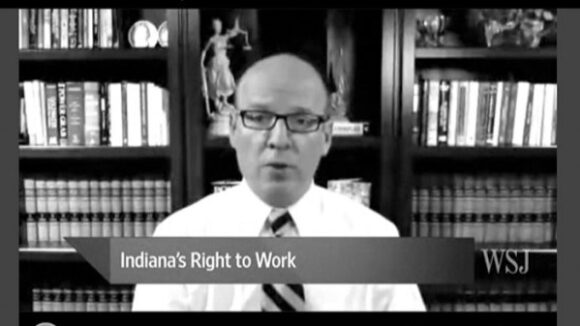New Book Plugs One-Sided 'Right' to Unionize
In a just-published book, Big Labor academic Richard Kahlenberg and union lawyer Moshe Marvit (inset) advocate full protection for the right to join a union, but only nominal protection for the right not to join. Credit: The Century Foundation Carnegie Mellon University Big Labor Academics Oppose Equal Protection For Right Not to Join (source: National Right To Work Committee April 2012 Newsletter) The National Labor Relations Act (NLRA), the principal federal law regulating employee-employer relations in America's private sector, purports to uphold the right to "form, join or assist labor organizations" and also "the right to refrain from" forming, joining or assisting such organizations. But the NLRA fails utterly to give equal protection to workers who don't want a union. For example, under the NLRA as interpreted by the courts, workers have only a nominal right not to join. As nonmembers, they don't have the right to refuse to pay dues or fees to a union, and still keep their jobs, whenever union officials can obtain "exclusive" bargaining privileges. On the other hand, the NLRA fully protects the freedom of employees who want a union to join and pay dues; it doesn't matter at all if their employer and the majority of their fellow employees oppose unionization. Pro-union employees cannot legally be fired or otherwise discriminated against for joining or financially supporting a union under any circumstances. 'True Civil Rights Are Two-Way Streets'




